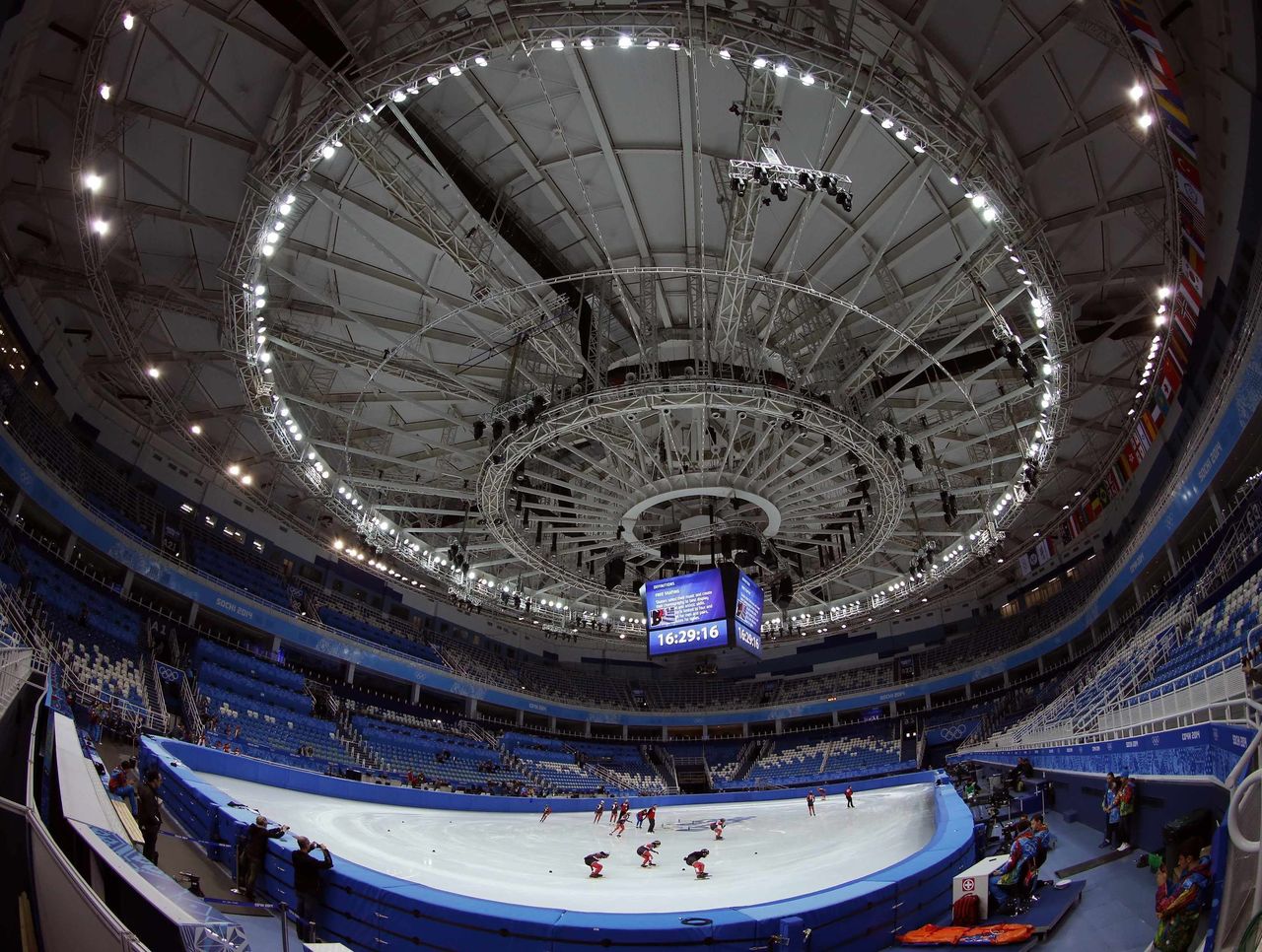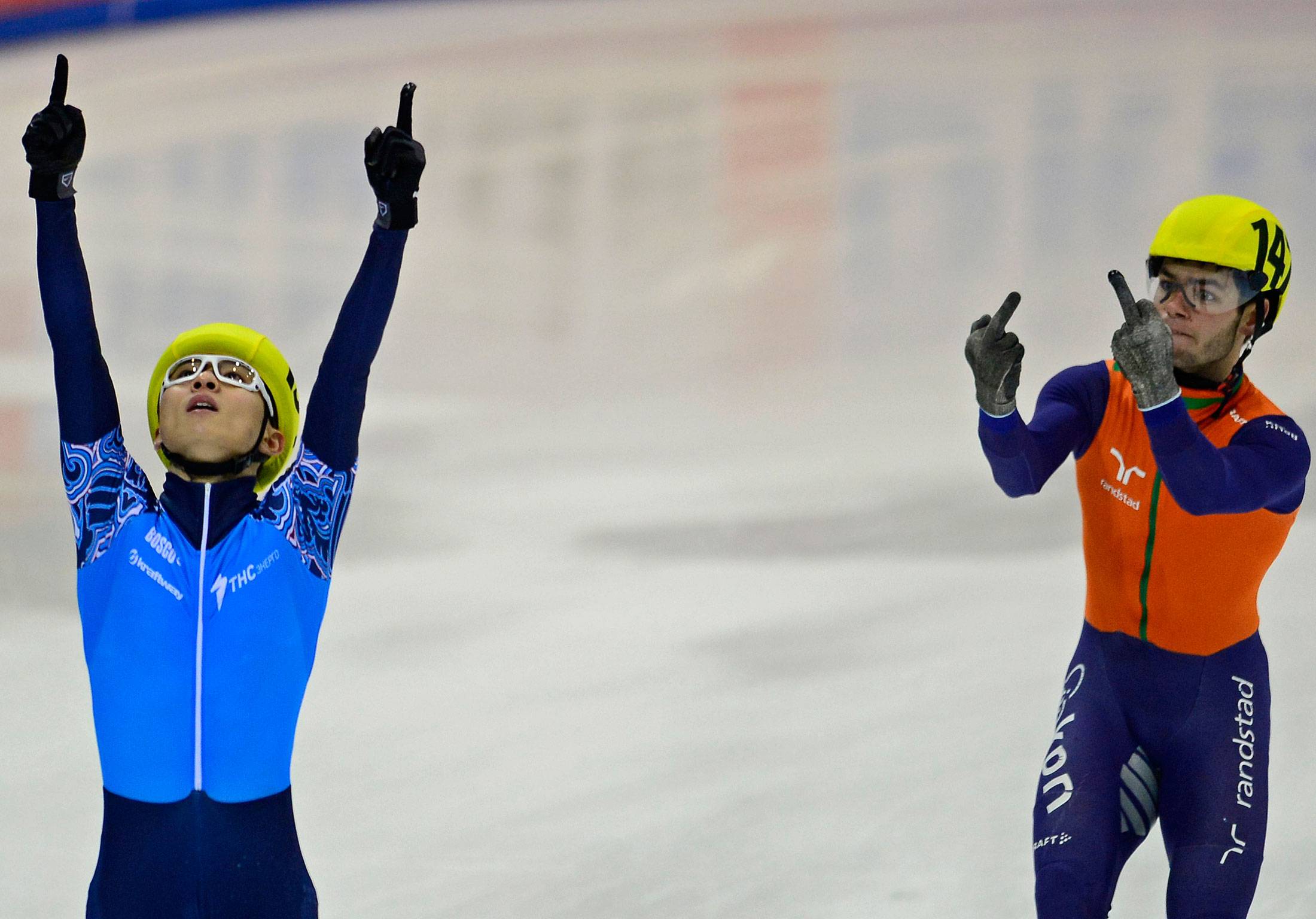Winter Olympics preview: Short Track Speed Skating
History
Short Track Speed Skating achieved notoriety in the United States and Canada during the 1930s as a novelty sporting event where a mass start resulted in a glut of skaters fighting their way to the front. It was fun to watch.
Not much has changed to this day, aside from the skaters per race. The sport was adopted by the International Skating Union in 1967 and in 1981 the first World Championships were held.
Short Track achieved demonstration sport status at the 1988 Olympics in Calgary and made the breakthrough to full out Olympic sport in Albertville four years later.
Short Track consists of a mass start with four to six skaters on the starting line. Tactics and strategy are key. Think of it as the Tour De France on drugs. Oh, wait.
Events
Men’s and women’s 500m, 1000m, 1500m, men’s 5000m relay and women’s 3000m relay.
Venue: Iceberg Skating Palace

The Iceberg Skating Palace can seat 12,000 spectators and will also hold the figure skating competition. The venue reportedly cost $43.9 million to build. After the Olympics the arena could stay as an ice skating rink or be converted into a velodrome.
The Top Story
Three-time Olympic gold medalist Viktor Ahn is Russia’s best hope on the short track. Ahn reportedly sought Russian citizenship due to repeated altercations with his South Korean coaches and teammates. Russian skater Vladimir Grigoryev is also hoping to breakthrough in a sport dominated by South Korea, China, the Netherlands, the United States and Canada.
On the women’s side South Korean teenager Suk-Hee Shim is the one to watch. She’s the two-time reigning overall world champion and will look to add to her impressive resume in Sochi. Reminder: she’s only 17. Italy's Arianna Fontana, Canada's Marianne St-Gelais and Great Britain's Elise Christie are also expected to challenge for medals.
Five Names To Remember
Charles Hamelin (Canada) - 500m, 1000m, 1500m, 5000m relay: Hamelin comes into the Olympics on an excellent run. In four World Cups prior to Sochi the 29-year-old won eight gold, one silver and one bronze medal. He trails only Viktor Ahn and Apolo Anton Ohno in total World Cup podiums.
Sin Da-Woon (South Korea) - 500m, 1000m, 1500m, 5000m relay: Sin dominated at the 2013 World Championships in Debrecen, Hungary, walking away with the overall title in comfortable fashion. Just how dominant is South Korea on the short track? They’ve produced 10 of the past 11 men’s overall champions.
J.R Celski (United States) - 500m, 1000m, 1500m, 5000m relay: Celski has the daunting task of filling the void created by the retirement of Ohno. Celski picked up two bronze medals in Vancouver and will have a chance to add a Gold in the 5000m relay, where the Americans are the favorites.
Elise Christie (Great Britain) - 500m, 1000m, 1500m: The first British woman to win a World Championship medal is downplaying her chances heading into Sochi. The 23-year-old has struggled this season after experimenting with race tactics, but she’s rounding into form at the perfect time.
Suk-Hee Shim (South Korea) - 500m, 1000m, 1500m, 3000m relay: With China’s Wang Meng sidelined due to injury Suk-Hee Shim has the opportunity to dominate in Sochi. A four gold medal haul is not out of the question for the 17-year-old.
Three Terms You Need To Know
Impeding: Pushing, blocking or impeding another skater is punishable by disqualification. This happens a lot in Short Track Speed Skating.
Strategic Skating: Are there two Canadians in a race of consisting of six skaters? You better believe they’ll be working together.
Unsportsmanlike conduct: Like we said, this is a really fun sport.
